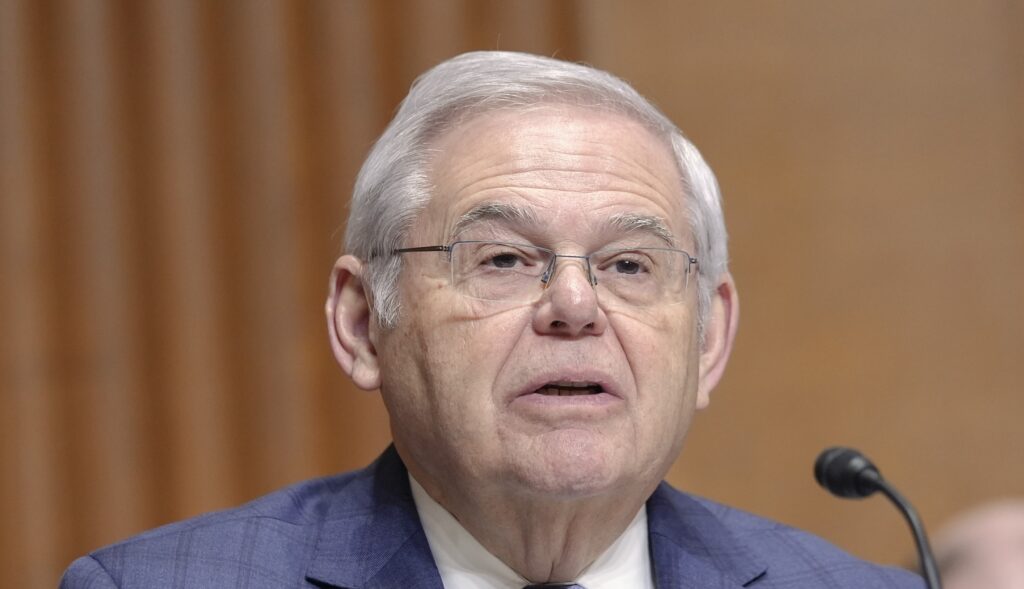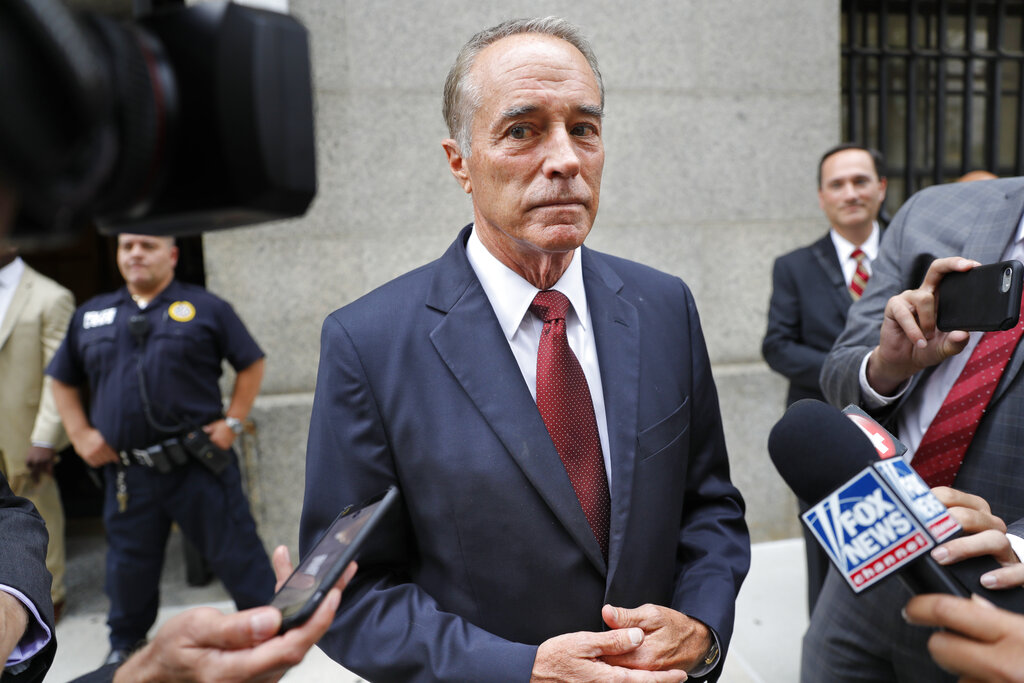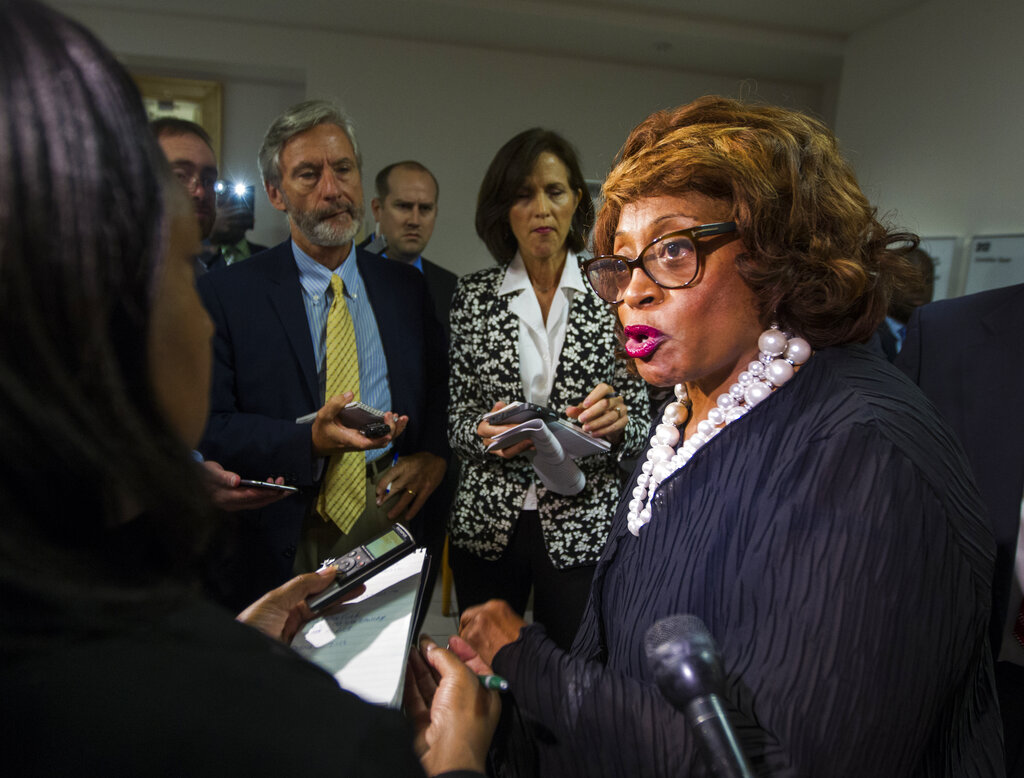
Rep. Henry Cuellar (D-TX) joined the list of members of Congress who are facing or have faced federal charges after the Department of Justice unveiled a 14-count indictment against the Texas Democrat on Friday for allegedly taking nearly $600,000 in bribes from two foreign entities.
The indictment claims Cuellar and his wife accepted at least $598,000 in bribes from an Azerbaijan government-controlled oil and gas company and a bank in Mexico City. The Texas Democrat and his wife each face 14 counts, including charges of conspiracy to commit bribery, bribery of a federal official, conspiracy to commit honest services fraud, violating a ban on public officials acting as foreign agents, and several money laundering violations.
Cuellar proclaimed he was innocent of the charges levied against him ahead of the indictment, arguing that “everything I have done in Congress has been to serve the people of South Texas.”
“Before I took any action, I proactively sought legal advice from the House Ethics Committee, who gave me more than one written opinion, along with an additional opinion from a national law firm,” the Texas Democrat said. “The actions I took in Congress were consistent with the actions of many of my colleagues and in the interest of the American people.”
The congressman noted he is still running for reelection in November and “will win.”
Several other members indicted have also said those famous last words, with some losing their primary bids, some facing prison sentences, and others currently fighting to keep their seats in Congress in the 2024 election.

Bob Menendez
The indictment of Sen. Bob Menendez (D-NJ) sent Congress into a tailspin after the DOJ brought 16 felony counts against him and his wife, Nadine, last year for their alleged “corrupt” relationship with three New Jersey businessmen and for acting as an unregistered foreign agent. The DOJ alleged Menendez and his wife accepted gold bars worth hundreds of thousands of dollars from a felon in a trade for help.
Most recently, Menendez’s lawyers have argued that “generational trauma and a habit to hoard reserves” as a reason for the senator’s collection of gold bars and $480,000 in cash.
This is not his first run-in with corruption allegations; in 2015, Menendez was indicted on corruption charges, but the case ended in a mistrial in November 2017. He was ultimately reelected to the Senate in 2018 by a comfortable margin.
This time around, however, he may not be so lucky. Though Menendez announced he would not run for the Senate in 2024 as a Democrat, he said he was keeping the door open to an independent bid. A Monmouth University poll taken in March found that 75% of New Jersey residents think he is probably guilty and 63% believe he should resign. His approval rating sits at 16%, the lowest ever recorded in a Monmouth poll.
In March, New Jersey Democratic first lady Tammy Murphy dropped out of the Senate race, clearing the way for Rep. Andy Kim (D-NJ) to challenge Menendez. Following the senator’s indictment, Kim received a boost of support. The Monmouth poll found Kim had a 48% favorability rating.
Sen. John Fetterman (D-PA), who has led the charge in the Senate calling on Menendez to resign, endorsed Kim in January. Given the Democrats face an uphill battle to maintain control of the Senate in 2024, Fetterman said it was important to have a “reliable Democratic vote.”
Menendez’s trial is scheduled to start on May 13, and his wife will face a separate trial.

George Santos
Former New York Republican Rep. George Santos was indicted on 13 felony counts last May over accusations that he misled donors and misrepresented finances. In October, he was hit with 10 more felony charges. He has since pleaded not guilty, and a federal criminal trial is on hold to allow him to engage in “continuing plea negotiations.” In January, he asked a federal judge for more time to pursue a plea deal.
He announced in March that he would be leaving the Republican Party following the House passage of a $1.2 trillion spending deal and launching an independent bid for Rep. Nick LaLota’s (R-NY) seat.
However, in April, Santos withdrew his independent bid for New York’s 1st Congressional District. One New York Republican told the Washington Examiner, “That’s short for: I’m taking a plea deal.”
The embattled New York Republican had continually made news for his legal woes, resume lies, and flamboyant interactions with the media. In a historic vote, Santos became the sixth House member to be ousted from Congress last December following calls for his resignation from both parties.
His ousting came after a scathing Ethics Committee report found “substantial evidence” that Santos had knowingly filed false or incomplete reports to the Federal Election Commission, used campaign funds for personal purposes, and “engaged in knowing and willful violations” in relation to the Ethics in Government Act.

Jeff Fortenberry
Former Nebraska Republican Rep. Jeff Fortenberry was indicted on several charges in October 2021 and convicted in March 2022 on one charge of concealing information and making false statements to federal authorities who were investigating illegal contributions made by a foreign national to his 2016 reelection campaign. He did not receive prison time but was sentenced to two years of probation and a $25,000 fine.
Former Speaker Kevin McCarthy, who was then the House GOP leader, asked for Fortenberry’s resignation, with which he complied.
In December last year, the 9th U.S. Circuit Court of Appeals threw out Fortenberry’s conviction, arguing that he should have been tried in Nebraska or Washington, D.C., where the false statements were made, instead of California, where his trial was held.
The deadline to request a reconsideration of the appeals court ruling passed in March, but prosecutors are still determining whether to seek a second trial against Fortenberry in Nebraska or Washington, D.C., per the Nebraska Examiner. Prosecutors could also appeal the court’s ruling to the Supreme Court.

Chris Collins
In 2018, former New York Republican Rep. Chris Collins was arrested and charged with conspiracy, securities fraud, and making false statements to the FBI in connection to insider trading.
He, along with his son and his son’s father-in-law, were charged. Collins resigned from Congress on Sept. 30, 2019, the day before he pleaded guilty to conspiracy to commit securities fraud and lying to federal law enforcement agents.
He was sentenced to over two years in federal prison, but he was granted a full pardon in 2021 by then-President Donald Trump in the final hours of his administration.

Duncan Hunter
Former California Republican Rep. Duncan Hunter was indicted in 2018, along with his wife, Margaret, on charges of converting over $250,000 in campaign funds to “pay for personal expenses and filed false campaign records” with the Federal Election Commission.
Hunter pleaded guilty to one charge in December 2019 and later resigned from the House in January 2020. Like Collins, Hunter received a last-minute full pardon from Trump in 2021.

Corrine Brown
Former Democratic Rep. Corrine Brown faced an indictment on fraud charges from the DOJ in July 2016 in connection with lying on tax and financial disclosure forms and misusing funds belonging to an education charity. In August that year, she lost her reelection bid in the primary, ending her 24-year career in Congress.
She was convicted on 18 of 22 charges and sentenced to five years in prison in 2017. She served two years before her guilty verdict in that trial was overturned by an Atlanta appeals court in 2021, leaving the 2016 charges unsettled until she reached a plea deal in 2022. She pleaded guilty to one of the 18 counts she was found guilty of, avoiding a second trial that would have started in September 2022.
Brown attempted to return to the House in 2022, but she finished fourth in a 10-person Democratic contest to represent Florida’s 10th District. The race was won by now-Rep. Maxwell Frost (D-FL).
CLICK HERE TO READ MORE FROM THE WASHINGTON EXAMINER

Chaka Fattah
Former Pennsylvania Democratic Rep. Chaka Fattah lost his primary and subsequently resigned from his House seat after he was indicted in 2015 for allegedly participating in a racketeering conspiracy. The DOJ claimed the conspiracy included “several schemes intended to further his political and financial interests by misappropriating federal, charitable and campaign funds, among other things.”
Fattah was convicted in June 2016 on charges of racketeering, bribery, wire fraud, money laundering, and others. He was sentenced to 10 years in prison in December that year.






